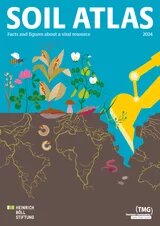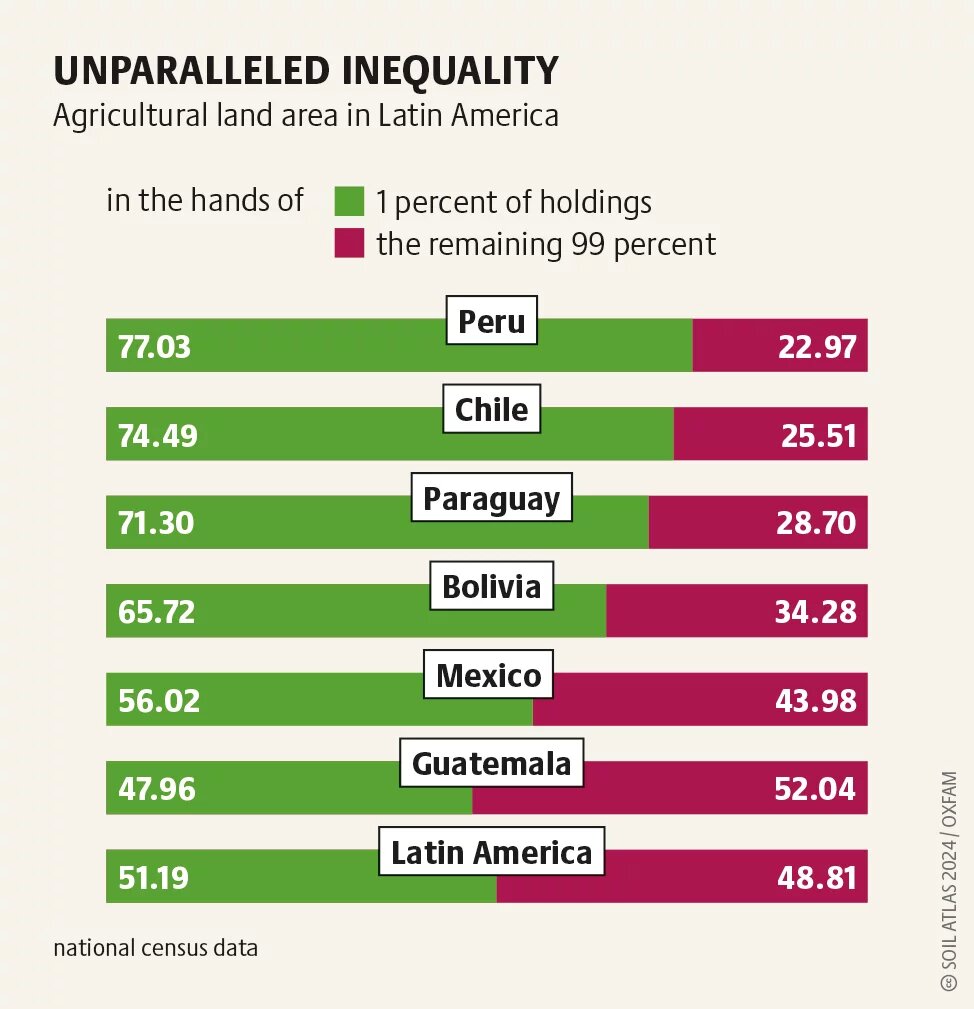
Land has been heralded as a crisis-proof investment around the world. However, these deals often make money for the wealthy few, while pushing local people off their land and into poverty. Countries like Germany, Singapore, and the United States are complicit in such land grabs.

Since the turn of the millennium, the world has been gripped by various interconnected crises. Starting in 2007, the financial crisis shook the world; the price of oil almost tripled between 2007 and 2008, while soaring food prices led to food riots in at least 40 countries. The search for new, safer investments and the lure of profits from food price increases caused investors’ gaze to turn to fertile farmland. As an investment, land promised a double bonus: the rising value of the land itself and a profitable area for growing food, animal feed, and energy crops for biofuels. In the name of climate action, land is also being acquired for industrial tree plantations, which play a big role in global carbon trading schemes. The same is true for biodiversity: designating land to expand protected areas often violates the rights of people who already live on or use the land. The acquisition of land by corporations, banks, and investment funds – frequently hand in hand with national elites – is commonly referred to as land grabbing.
Due to these crisis-inducing economic dynamics, land ownership has increasingly concentrated in the hands of a few investors since the 2000s. For example, the Singapore-based food giant Olam International now claims to control over more than 3 million hectares of land. Between 2006 and 2014, 300 investors acquired almost 2 million hectares of land in Cambodia. That is around half of Cambodia’s total arable land. Between 100 and 213 million hectares worldwide are estimated to have changed hands through land deals since the turn of the millennium. To put that in perspective: the European Union (EU) has a total of 157 million hectares of agricultural land. In many cases, landgrabbing involves the forced displacement of local populations. Peasant and Indigenous communities are hit especially hard. They may lose access to pasture, forests, rivers, and fields, and therefore their livelihoods. Moreover, their houses or entire villages are often destroyed. Such actions constitute an array of human rights violations, including the right to food, water and housing, and systematically undermine specific Indigenous and peasants’ rights: for example, any relocation must involve both free, prior informed consent and adequate compensation.
Many governments and investors justify land grabbing as a way to fight poverty and develop rural areas. However, it often achieves the very opposite: very few people find work on the newly established mega-plantations. For instance, mechanised sugarcane production in São Paulo, Brazil, requires only a single sugarcane cutter per 400 hectares, leading to a substantial loss of jobs compared to the small-scale farms these plantations replace. Moreover, mega-plantations typically prioritise cash crops, such as sugarcane, soybean, or oil palm, over food crops needed to sustain local communities. The combined cultivated area of these three commodities alone grew by 57 million hectares between 2007 and 2021, an area larger than Spain. Such land use change has driven displaced people to either relocate again or emigrate altogether. At the same time, the majority of profits generated from land deals flow to the urban elite and international investors, leaving little benefit for the local economy.
How countries of the Global North are complicit in these land grabs can be illustrated by the case of Germany. For example, the Berlin investor Amatheon has acquired over 40,000 hectares of land in Zambia. In 2009, Deutsche Bank invested at least 279 million euros through its subsidiary DWS in firms that bought or leased cultivable land, resulting in the acquisition of over 3 million hectares of land in Africa, South America, and Southeast Asia. The Ärzteversorgung Westfalen-Lippe, a pension fund for doctors, invested 100 million dollars in a global land fund, which, in Brazil alone, acquired 133,000 hectares of land, in particular for large-scale soybean monocultures.
Pressure on land is also rising due to so-called green grabs. For instance, the Italian oil giant ENI purchases forest certificates globally to portray its business as climate neutral or achieving so-called net zero emissions. In 2022, it bought 1.7 million carbon credits from a 940,000-hectare forest offset scheme in Zambia. In parallel, it continues to invest in biofuel production, including a 22,000-hectare land deal in the Democratic Republic of the Congo, to replace some of its fossil inputs.
According to the current legal interpretation of the United Nations on land and human rights issues, countries involved in land deals should undertake measures at three levels. First, they should ensure that their own actions, such as through development banks, do not violate legitimate land rights. Second, through appropriate regulation, countries must prevent violations by firms based in their territories. Third, governments must collaborate internationally to address land concentration and strengthen access and rights to land for marginalised groups. There is still much to be done on all three counts.


